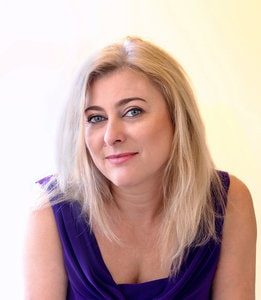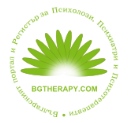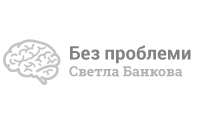
‘There is more wisdom in your body than in your deepest philosophy.”
Friedrich Nietzsche
The idea for the “Institute for integrative psychotherapy and psychosomatics” appeared to me, when after working 20 years as a body psychotherapist I realized that only one method never helped my clients and that in my work I intuitively used methods from different psychotherapy schools I was so lucky to know, one or another way. It’s a fact that the main approach in my work is neo-Reichian body psychotherapy (based on the Neoreichian theory of Prof. Waldo Bernasconi). This is what I’ve studied, what I believe in and applied most often in my work as a psychotherapist. During the years, while working as a psychotherapist I was also interested in psychoanalysis, Jungian Therapy, cognitive-behavioral, gestalt therapy, existential psychotherapy, family constellations, psychodrama and many others. Additionally, I participated in different seminars, workshops, and conferences as a part of my continuing education and my desire to improve my skills so I can be maximum helpful to my clients.
But just the last year I realized that the eclectic approach I apply is not offered as an education by any formal psychotherapy school in Bulgaria or at least one I didn’t know of. It seemed that the idea for integrative approaches in psychotherapy is not new in the world. It exists for almost 40 years and there is at least dozen of Institutes in Europe, members of European Association of Integrative Psychotherapy (EAIP). The Society for the Exploration of psychotherapy Integration (SEPI), created in 1983 has a special contribution to this approach. In the USA, this idea was even older and there is an international organization unifying similar thinking psychotherapist from the whole world. I didn’t invent “the hot water”, for sure. But most probably I’m one of the few, who wants to implement the idea of the integrative approach in psychotherapy in Bulgaria. I was encouraged and supported in this process by Prof. Elena Mustakova, who worked 20 years in the field of integrative therapy and has a huge contribution to its development.
Let me explain. There is no best” or “better” psychotherapy school in the world. We all fight and work for the wellbeing of our clients, with the methods we best know, understanding their limitations. Because the person, as we know him, is unique. We can not work with recipes and we cannot apply some matrix approach of methods and techniques, hoping that they can respond to his uniqueness and to solve his problems.
I also asked myself- what dilemma most psychology students face when they decide to become psychotherapists? What school or approach to chose when all of them have their own advantages? And then a student in psychology asked me: will be there, finally, any education that will include more methods so we don’t have to choose? The answer just came up. I hope that with the creation of the Ïnstitute for integrative psychotherapy and psychosomatics” the issue will be resolved.
Why did I decide to include psychosomatics in this education as well?
Because I deeply believe in psychosomatics and in the body-mind connection. I believe that the separation between psychology and medicine can be overcome, at least partially if not completely. Because body and mind are not separate things, but they affect one another. Because my office is full of people, for whom I’m the last hope and last chance, after being ünsubscribed” by their doctors with the words “nothing is wrong with you, everything is in your head”. Because there are people with “medically unexplained symptoms’, but who are in huge pain and there are others who every single day believe they are sick a disease, their understand how absurd this is but can’t stop themselves. There are others, who suffer from a physical disease, but they develop depression, anxiety, and other psychological disorders but very rarely someone looks deeper to see what’s going on in persons soul and mind. The patient didn’t know where to look for help either. There are people, who are physically healthy but have sexual or psychological problems and are afraid to look for help because of still existing mental illness stigma, at least in Bulgaria. And there are those people, who are diagnosed with disorders for which the science has no explanation whatsoever (autoimmune disorders for example). There are many unexplained from a medical point of view cases, at least what I’ve seen in my office. This is exactly the filed of psychosomatics and somato-psychology, of what I believe nowadays the future therapist should be trained for.
Here, I didn’t discover anything new either. The European Association of Psychosomatics of which I’m a member as well, for years have gathered psychiatrists, doctors and psychotherapists to exchange ideas and present the latest findings in the field of psychosomatics.
I believe that today, in our dynamic century of constant changes more than ever our psychotherapists should be trained not only in a few different psychotherapy approaches but that mind, body, and soul are connected and should ‘t be treated separately. In addition to psychotherapy, they should be trained in psychosomatics as well.
Any client should be approached as an integrative person: an integration of spiritual, intellectual, social, cultural and body needs, of his relationships, of the social-cultural and geographical context in which he was born, lives and evolves.
How would the integrative approach work at the Ïnstitute for integrative psychotherapy and psychosomatics”? On a few levels:
Integration on a theoretical level, servicing 11 domains of psychological health and well being:
- Psychodynamic
- Cognitive
- Behavioral
- Existential
- Body
- Emotional
- Family systematic
- Psychosexual
- Psychosomatic
- Social/cultural/historical
- Spiritual and transcendent
All of the above, as separate modules, one or another way, have been included in the suggested education of integrative psychotherapy. These are the subjects I believe most would help the client to achieve health in any meaning and derive more pleasure from life.
Integration on personality level:
Psychodynamic
Cognitive-behavioral
Emotional
Transgenerative/ family
Existential/transpersonal
Neurobiological/body
Spiritual
Integration of the psychotherapist a person
In the process of education, the psychotherapist will develop his own style for practicing psychotherapy and he will be encouraged to be creative, to communicate and to interact with colleagues with other psychotherapy orientations, and to continuously develop himself as a psychotherapist. The main point will be to develop an individual approach towards every different client and every single psychotherapy situation.
The training in the Institute for Integrative psychotherapy and psychosomatics” we’ll rely on a few approaches: assimilation integration (i.e. working primarily with one modality, but the integration of other aspects, as the situation requires), technical eclectism( i.e. using different elements from different psychotherapy modalities) and the common factors approach (i.e. focusing on different psychotherapy practices, common for all psychotherapy modalities).
Body psychotherapy:
The basics of this education will be the neo-Reichian body psychotherapy, found by Prof. Waldo Bernasconi, a follower of Wilhelm Reich and Alexander Lowen, who rely on the thesis that in every human being there is an incommutable connection between mind and body and that there is no way to heal the mind without considering the relation with the body. This imposes the application of one body-bioenergetic-mind psychotherapy, aiming the recovery of the whole balance of body and mind. The body psychotherapy in Bulgaria already has 20 years of history and I’m one of the first students, trained in this psychotherapy approach. The method is recognized by the European Association of Body psychotherapy.
More about the Neo-Reichian psychotherapy:
Psychosomatics as a term has a very long history. During middle ages, the Persian psychologist and physicist Ahmed ibn Sahl al-Balkhi (934) and Haly Abbas (994) develop the early model for diseases and stress on the connection between body and mind. Even back then they suggest that the mind and physiology of the patient can influence reciprocally one another. At the beginning of the 20th century, the interest towards the psychosomatic concept resumed. Franz Alexander writes and works on the dynamic correlation of body and mind. Sigmund Freud also expresses interest, communicating with Georg Groddeck, who at moment researches the possibility of treating physical illnesses through different psychological approaches. In 1970-is Thure von Uexkull and his colleagues in Germany propose a biosemiotic theory, which is one of the most influential for the connection body-mind. Henry Laborit, one of the founders of neuropsychopharmacology conducts some experiments in 1970-s which show that the diseases in rats manifest quicker if there is an inhibition of the action. Rats, at the same conditions who do not inhibit their actions (these, who have the possibility to react with the flight-or-fight response, regardless that the fight is completely useless) do not exhibit such sickness symptoms. Henry Laborit proposes that the psychosomatic disorders in humans are based on the limitations, which the society imposes on the individual in order to support its dominance structure.
Many other scientists contributed to the development of the psychosomatics. Helen Flanders Dunbar viewed the patient as a combination of mind, body, and soul. She believed that all needed to be treated in order to treat a patient efficiently. Dunbar founded the American Psychosomatic Society in 1942.
The European Association of Psychosomatics is a uniting organization of the scientific research in this field. The psychosomatic medicine today unites different medical specialties like psychiatry, psychology, neurology, internal medicine, surgery, dermatology, psychoneuroimmunology etc.
Having in mind the fact, that many of the clients seeking psychotherapy have also other comorbid and premorbid disorders that apparently influence their psychological health, it is unacceptable not to train one integrative therapist in psychosomatics as well.
I hope that the Ïnstitute for integrative psychotherapy and psychosomatics” will respond to the requirements of the new age and the necessity of such education in Bulgaria.
Svetla Bankova,
psychologist and psychotherapist
0885 26 44 00


